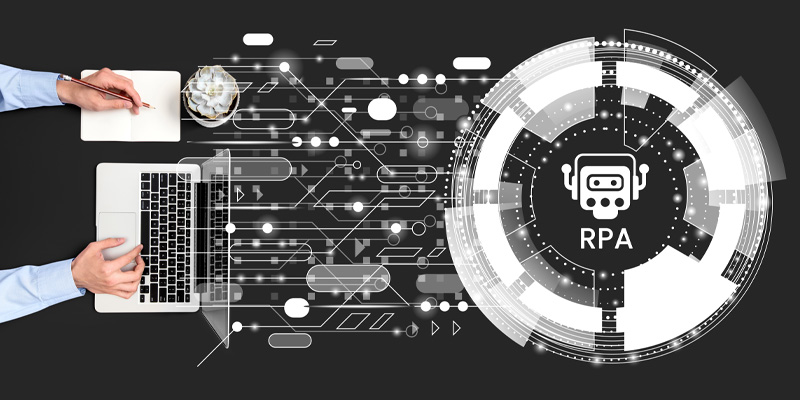Artificial Intelligence (AI) has been around for decades. Still, recent advancements have led to a surge of interest in its potential uses and applications. AI is poised to revolutionize the way we live, work, and do business. In this article, we will explore the potential future outcomes of AI and how it can be used to benefit businesses.
Table of Content
ToggleIntroduction
What is Artificial Intelligence?

Types of Artificial Intelligence
There are two types of AI: Narrow or Weak AI and General or Strong AI.
Narrow or Weak AI is designed to perform a specific task, such as recognizing images or playing chess.
General or Strong AI, on the other hand, is designed to be capable of performing any intellectual task that a human can do.
How Artificial Intelligence Works
Future of Artificial Intelligence and Potential outcomes

The potential future outcomes of AI are vast and varied. Here are some of the most significant
possibilities:
Increased Automation
Enhanced Customer Experience
Improved Decision-Making
AI can analyze data and identify patterns and trends that humans may miss. This can lead to better-informed decision-making, reducing the risk of errors and improving outcomes.
Predictive Maintenance
AI can be used to analyze data from sensors and other devices to identify potential equipment failures before they occur. This can reduce downtime and maintenance costs.
Autonomous Vehicles
AI is already being used to develop self-driving cars, trucks, and other vehicles. This could revolutionize transportation and logistics, reducing costs and improving safety.
Medical Diagnosis and Treatment
AI can be used to analyze medical data, such as medical images and patient records, to assist with diagnosis and treatment planning. This could lead to more accurate diagnoses and personalized treatment plans.
How AI Can Benefit Businesses

AI has many potential benefits for businesses. Here are some of the most significant:
Increased Efficiency
Improved Customer Experience
Enhanced Data Analysis

AI can analyze large amounts of data quickly and accurately, identifying patterns and trends that humans may miss. This can lead to better-informed decision-making and improved business outcomes.
Predictive Maintenance
By using AI to analyze data from sensors and other devices, businesses can identify potential equipment failures before they occur. This can reduce downtime and maintenance costs, improving overall operational efficiency.
Cost Savings
By automating tasks and improving efficiency, AI can lead to significant cost savings for businesses. This can free up resources to invest in other areas, such as research and development, marketing, or talent acquisition.
Competitive Advantage
Businesses that embrace AI early on can gain a significant competitive advantage over those
that do not. AI can help businesses improve their products and services, streamline their
operations, and better understand their customers.
Challenges and Risks of AI

While AI has many potential benefits, there are also challenges and risks that need to be considered. Here are some of the most significant:
Job Displacement
Bias and Discrimination
AI systems are only as unbiased as the data they are trained on. If the data used to train an AI
system is biased or discriminatory, the system will reflect that bias. It is important for businesses
to be aware of this risk and take steps to ensure that their AI systems are trained on unbiased
data.
Security and Privacy
Ethical Considerations
AI raises a number of ethical considerations, particularly around issues such as transparency, accountability, and fairness. It is important for businesses to consider these ethical implications when developing and implementing AI systems.
Test and Iterate
Testing and iteration are critical to improving UI/UX. Conducting usability tests and gathering user feedback can help identify improvement areas and make necessary interface changes. It’s essential to keep iterating and to improve the design to ensure that it meets the user’s needs and provides a seamless and intuitive experience.
Conclusion
AI has the potential to revolutionize the way we live, work, and do business. By automating tasks, improving decision-making, and enhancing customer experiences, AI can provide significant benefits to businesses. However, it is important for businesses to be aware of the challenges and risks associated with AI and take steps to address them.
FAQs
Narrow AI is designed to perform specific tasks, while general AI is designed to be capable of
performing any intellectual task that a human can do.
AI works by using machine learning algorithms to analyze data and learn from it.
Some potential future outcomes of AI include increased automation, enhanced customer
experience, improved decision-making, predictive maintenance, autonomous vehicles, and
medical diagnosis and treatment.
Some benefits of AI for businesses include increased efficiency, improved customer experience,
enhanced data analysis, cost savings, and competitive advantage.
Some challenges and risks associated with AI include job displacement, bias, discrimination,
security, privacy, and ethical considerations.
In addition to customer service and support, AI can be used in business for tasks such as data
analysis and prediction, process automation, fraud detection, personalized marketing, and
supply chain optimization.
While AI can bring many benefits to businesses, it also carries potential risks, such as privacy
violations, bias in decision-making, job displacement, and security vulnerabilities.
To ensure the ethical use of AI, businesses should establish clear guidelines and standards for
its use, prioritize transparency and accountability, regularly monitor and audit AI systems, and
involve stakeholders in decision-making.
While AI can automate many tasks, it is unlikely to replace human workers entirely. Instead, it is
more likely to augment human capabilities and create new job opportunities.
To prepare for the future of AI, businesses should invest in AI research and development, foster
a culture of innovation, prioritize data privacy and security, train employees on AI skills, and adapt to changing market demands and trends.